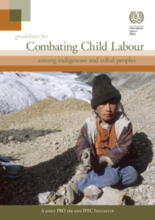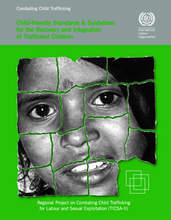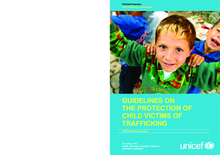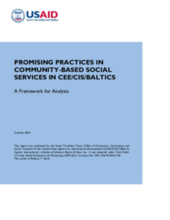Displaying 311 - 320 of 341
A practical guide for local and communtiy based organizations about how to protect children from sexual abuse and exploitation in disaster and emergency situations.
Guidelines to address the specific needs and rights of indigenous children in the context of child labour. Includes a comprehensive list of follow-up resources.
Guidance on the formation of multidisciplinary teams for the provision of services to child victims of abuse and trafficking.
Standards for shelters and care providers responding to children who have been trafficked. It gives guidance and practice examples of intake procedures, interim and longer term care, support services, integration and reunification
A literature review of HIV vulnerability in Vietnamese children. Includes analysis of current gaps in related research.
General principles for the protection of trafficked children. Guidance is given on identification, appointment of a guardian, registration, interim care, case assessment, durable solutions, access to justice, costs, and research issues.
Provides a framework for analysis of community-based social welfare services and linkages with government structures. Includes analysis of alternative care provision, de-institutionalization, programming for children with disabilities, standards of care, and overall social welfare sector reform.
A self-study manual on the care, protection and psychosocial rehabilitation of commercially sexually exploited children.
A twelve page policy brief that outlines Save the Children's position on the type of protection children need in an emergency. Contains some statistical information.
A resource pack for training caregivers of children who have been commercially sexually exploited. It includes 12 units to develop knowledge and practical skills of caregivers in areas such as child sexual abuse, commercial sexual exploitation, special and psychosocial needs, behavior management, health promotion, life and social skills, education and vocational training, communication and therapeutic skills, and rehabilitation.









